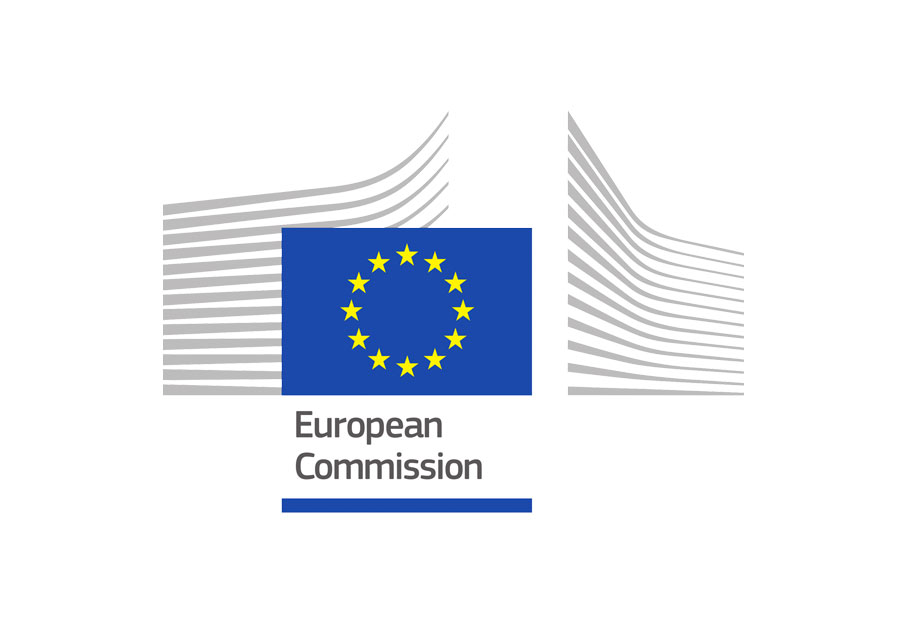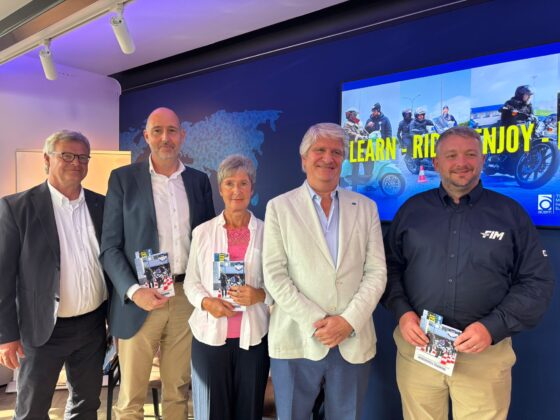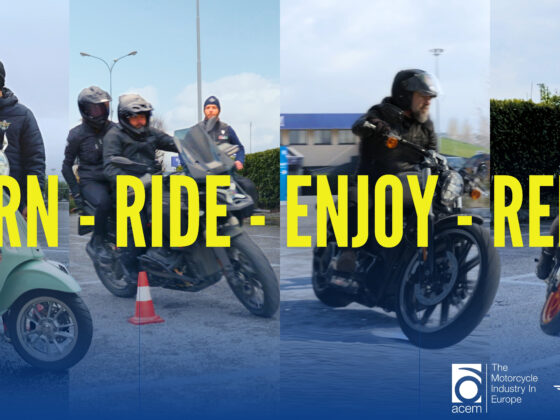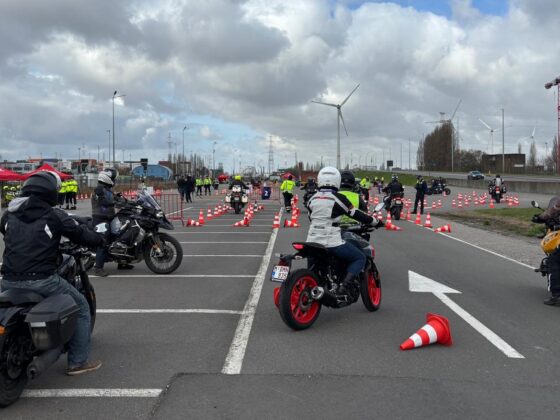Every year more than 25 000 people still die on EU roads, and 135 000 people are seriously injured. The four main killers on roads remain distraction, non-use of the seatbelt, alcohol and speed. Initiatives all around Europe try to have a positive impact on these and other dangerous behaviours on our roads. Six of these good practices are rewarded this year by the European Road Safety Charter with an ‘Excellence in Road Safety Award’. These are the winners that were announced today at a ceremony at the prestigious Vaudeville Theatre in Brussels today by European Commissioner for Transport Violeta Bulc.
Development of the Automodus app to avoid distraction by the smartphone
The project, developed and led by the insurance company Interpolis in the Netherlands, addresses distraction at the wheel, and in particular the use of mobile phones while driving. Distracted driving is a major risk factor in traffic: the risk of being involved in a crash increases by 12 times when dialling and 6 times when texting. The Automodus app helps drivers not to use their phone while on the roads: it continues to help navigate, but blocks all incoming and outgoing calls, as well as texting. The app also rewards phone-free driving in the form of points exchangeable for gifts, and gives feedback on driving behaviour. An accompanying awareness campaign on the safe use of smartphones has increased the impact of the project and created partnerships with road safety experts and stakeholders.
The initiative has been rewarded for successfully addressing the growing problem of distraction in traffic. The combination of an innovative technological solution with an awareness campaign and strong partnership has increased the likelihood of success in changing road users’ behaviour and has successfully contributed to mobile-free driving in the Netherlands.
http://erscharter.eu/road-safety-in-action/good-practice/interpolis-automodus_en
Drink driving awareness campaign for young drivers
The project was developed by InOutCister LDA, a Portuguese company specialised in traffic psychology, and covers a set of activities that aim to raise awareness among young drivers about the dangers of alcohol at the wheel. These activities include briefing of students by volunteers at social events on the dangers of drink driving; and encouragement of self-testing of alcohol consumption with breathalysers. Excessive alcohol consumption continues to be a reality among young people in Portugal leading to impaired driving and a number of serious crashes. The project encourages students to adopt safe behaviour towards alcohol consumption and to create awareness about the dangers of driving under influence. The action also enabled the organisers to collect data on alcohol consumption among youngsters.
European Motorcycle Training Quality Label
The German Road Safety Council, the European Association of Motorcycle Manufacturers (ACEM), and the International Motorcycling Federation (FIM), have developed together a voluntary certification scheme for post-licence safety training that helps motorcyclists more easily identify the best safety training programs in their countries. The Label was launched in 2016 and is an ongoing initiative that aims to establish a brand stamp for high-quality, post-licence training across the EU. It is open to any organisation based in Europe willing to submit its training programs for evaluation, such as schools for motorcycle riders, manufacturers and public bodies. The Label is granted for a period of 4 years and can be renewed.
The initiative is a practical and sustainable way of addressing the safety of motorcyclists, one of the most vulnerable groups of road users. In 2017, motorcyclists represented 15% of all fatalities, and 30% of young people. Voluntary post-licence training allows riders to upgrade their skills, enhance their risk perception and increase their safety awareness. The European Motorcycle Training Quality Label is a good example of a voluntary commitment at European scale, involving several influential partners. The initiative is also in line with European Commission calls for voluntary commitments from bigger stakeholders that reduce the need for legislation but at the same time contribute significantly to the EU’s medium and long-term objectives in terms of road safety.
http://erscharter.eu/road-safety-in-action/good-practice/european-motorcycle-training-quality-label
Road Safety Observatory of the City Council of Silly
The town of Silly in Belgium established a local Road Safety Observatory to address some of the most pressing issues on its roads (speeding, treatment of high risk zones, effective enforcement of traffic rules, safety of vulnerable road users, etc.). The observatory was founded 20 years ago and meets at least four times a year. It is made up of 12 members, including experts, municipal councillors, policemen, communal staff and neighbourhood representatives. The members initiate preventive measures, analyse requests received from residents and look for local solutions to local problems.
The initiative is a good example on how city councils can work with local citizens to improve road safety in an effective and sustainable way. The initiative will be a useful source of inspiration to other towns and cities who are looking for a participative structure that brings together many different actors to solve local road safety issues.
http://erscharter.eu/road-safety-in-action/good-practice/road-safety-observatory-silly
Two extra projects have received an award for the best ‘School Challenge’.
‘Be smart when in traffic’
The Şcoala Gimnazială Tompa László in Romania has 20 years’ experience in educating children to behave safely and smartly in different traffic situations. The focus of activities is on learning traffic rules on both on the roads and on pavements. Since 2000, the school has organised different courses and road safety related competitions. Classes are given in collaboration with local police officers. Other activities include afterschool lessons, and targeted road safety days, as well as theoretical tests and practical lessons, such as biking classes.
The project has had a significant impact despite limited resources, covering different kinds of activities related to the safety of children in traffic (walking, cycling, and interacting with other road users). The project is based on voluntary participation by children with the police to encourage independent and responsible behaviour stemming from better understanding of the importance of traffic rules and their enforcement.
Road safety education program
Fundación MAPFRE from Spain has developed an international road safety programme targeting mostly Spanish speaking countries, including 17 different countries in Latin America. Theory lessons for children are combined with prevention workshops for all ages with a particular focus on young and elderly road users. The project developed comprehensive learning materials, ranging from children’s books to PowerPoint presentations, which are freely available on its website. The objective of the program is two-fold: to increase knowledge on safe road use promoting in parallel a healthy lifestyle; and to educate not just children in the classroom but also their families at home on the importance of unintentional injury prevention.
It is a very comprehensive educational program, covering all aspects of road safety education of children. Fundación MAPFRE has made significant efforts in developing its learning materials, including not only on-line material but also about 12 million print copies of road safety and accident prevention stories, activity books and teachers’ guides. Special emphasis has also been placed on the training of trainers: training courses for educational professionals have been developed in coordination with universities. Finally, the program is a model of how to adapt materials and resources to different needs, taking into account local circumstances and local challenges.
Jacques Barrot Prize: two special awards
Every year since 2016 a special Prize is selected by the audience of the ceremony, choosing amongst the six Award winners of that year. This special Prize is dedicated to Jacques Barrot, former Commissioner for Transport. The Jacques Barrot Prize 2019 went to Interpolis from the Netherlands.
Previous winners of the Jacques Barrot Prize were: Lockerbie Academy from the United Kingdom (2016), the Romanian Automobile Club (2017) and VOZIM from Slovenia (2018).
This year, the public also had the opportunity to select the winner of the Jacques Barrot Grand Prize 2016 – 2019, chosen from the four winners of the Jacques Barrot Prize since 2016. The winner was Zavod VOZIM from Slovenia.
Mrs. Béatrice Barrot handed over these special Prizes and gave a warm and inspiring speech to the winners and the public. Grateful words that came from the heart and encouraged all to continue their commitment to save lives.
About the European Road Safety Charter
In 2004 the European Commission initiated the European Road Safety Charter. It is the largest civil society platform on road safety. Every year several initiatives of the European Road Safety Charter are rewarded for their contribution to safer roads across Europe.
More than 4 000 public and private entities (companies of all types and sizes, automobile clubs, associations, schools and local authorities) have committed to the Charter. The Charter invites members to make a commitment, pledging to take a specific measurable action within their area of responsibilities. Since 2006, the yearly Charter Award for excellence in road safety has been presented to one or several organisations that have carried out a particularly interesting and effective road safety initiative.
Vision Zero
Statistics show that every year more than 25 000 people still die on EU roads, and 135 000 people are seriously injured. The European Commission and EU Member States therefore committed to a target of reducing fatalities and serious injuries on the roads by 50% between 2020 and 2030, aiming for “Vision Zero”, no fatalities and serious injuries on EU roads, by 2050.
Information
European Road Safety Charter:
Commission’s road safety work:
http://ec.europa.eu/roadsafety
Follow us on Twitter:
@BaldwinMatthew




